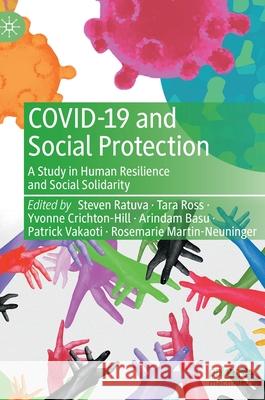Covid-19 and Social Protection: A Study in Human Resilience and Social Solidarity » książka
topmenu
Covid-19 and Social Protection: A Study in Human Resilience and Social Solidarity
ISBN-13: 9789811629471 / Angielski / Twarda / 2022 / 277 str.
Covid-19 and Social Protection: A Study in Human Resilience and Social Solidarity
ISBN-13: 9789811629471 / Angielski / Twarda / 2022 / 277 str.
cena 524,53
(netto: 499,55 VAT: 5%)
Najniższa cena z 30 dni: 501,19
(netto: 499,55 VAT: 5%)
Najniższa cena z 30 dni: 501,19
Termin realizacji zamówienia:
ok. 16-18 dni roboczych.
ok. 16-18 dni roboczych.
Darmowa dostawa!
Kategorie:
Kategorie BISAC:
Wydawca:
Palgrave MacMillan
Język:
Angielski
ISBN-13:
9789811629471
Rok wydania:
2022
Wydanie:
2021
Ilość stron:
277
Waga:
0.53 kg
Wymiary:
21.01 x 14.81 x 1.91
Oprawa:
Twarda
Wolumenów:
01
Dodatkowe informacje:
Wydanie ilustrowane











